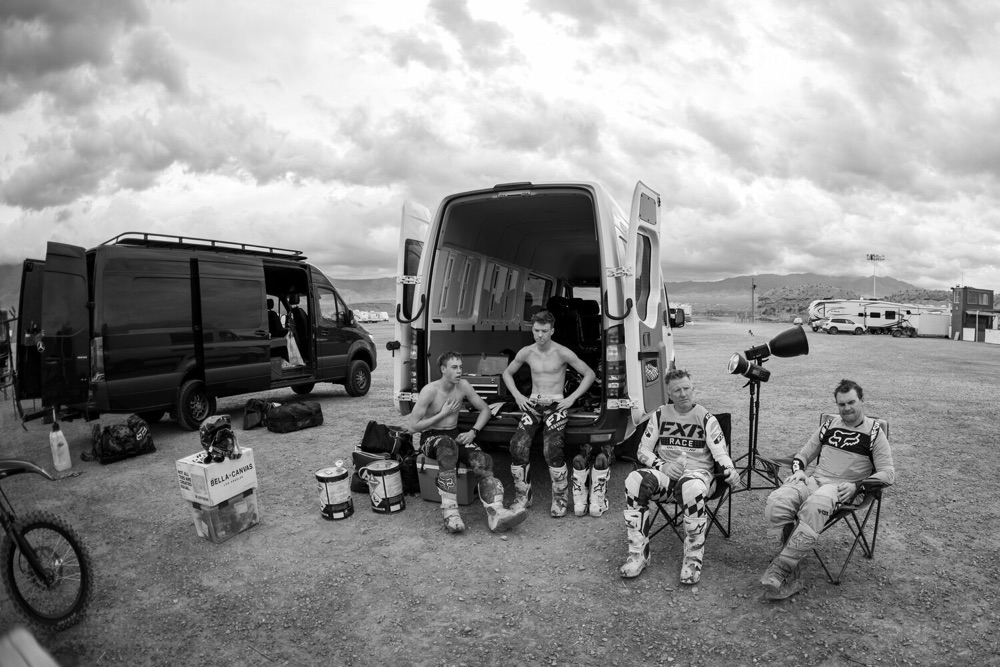Share This Article
By Seiji Ishii
It’s February, and it’s common for recreational athletes to come out of the gate hot, bent, and determined to charge into training for the year. But the stoke can often diminish, reduced to smoldering embers after pushing through work and family commitments, the heat of summer, and countless hours of bike maintenance. So how do you avoid being a “shooting star” in January, only to disappear into the horizon later in the year?

The Bank of Motivation
You can view your current level of motivation as a bank balance. Some things withdrawal motivation, while other things can add to the balance. This balance may fall at times, maybe even get overdrawn, but the trick to long-term motivational sustainability is to run a positive balance consistently.
Withdrawals are the things that sap your energy and drive. Training in severe conditions is certainly one, like cycling in the rain or riding when it’s 100 degrees. But so are lifestyle-oriented things, like a stressful day at work, arguing with a family member or spouse, or financial concerns. How much of a withdrawal each of these is personal. Some may not be as affected by weather, while it can mentally crush others. Some can solider on with minimal impact from a family issue, which can obliterate many. And often, athletes will “nickel and dime” themselves into insolvency. Unchecked, little habitual, and motivational drains can be more damaging than large hits.
Deposits are the opposite; they add energy and vigor. Massages are typical, as is a date night with your romantic interest or a great day out with your kids. Anything that brings joy, relaxation, and happiness can count as a deposit in the Bank of Motivation. And just like a real bank, consistent deposits, even if small, accumulate wealth.

Keep a Ledger, But it’s All Personal
When I was racing road bicycles, I was fortunate to have the guidance of successful coaches. One of these coaches suggested I keep an actual handwritten checkbook to track these deposits and withdrawals. I initially thought it was nonsense, but over the long haul, it did help.
I would assign my dollar value to every “transaction.” Massages were huge for me, so they would get a +$15 valuation. A date with a funny (and let’s be honest, attractive) person would also get $10. (Yes, a massage was worth more at the time.) But a movie would only be $3 because staying still and paying attention for that long was frustrating, so it wasn’t as valuable to me as a recovery activity.
The same logic applied to withdrawals; things that negatively affected me significantly were assigned the larger negative values. Emotional setbacks were the largest for me then, so an argument with my girlfriend might even get a -$20 entry (I know better now, lol).
Over time, I ferreted out lifestyle decisions and actions that consistently degraded my running balance and motivation and took active steps to solve those problems. One time it meant breaking up with a girl, and another time it meant getting another dog, lol. I had data that supported what I felt and the actions required to maintain a better tally.
I also understood lifestyle and recovery efforts that consistently kept my balance positive by a more considerable margin. I knew then, and still know today, that massages are incredibly therapeutic for me, both physically and mentally. In contrast, some things that others thought were huge weren’t for me. Many of the cyclists I trained with would give a “cheat meal” huge weight, while I found them only worthy of a $5 deposit.
Deliberate Deposits
It may seem “out there” to place so much value on these “deposits” or “withdrawals,” and maybe to some, it’s too “soft.” But for the athletes I’ve trained alongside and train or coach today, these things have a significant impact over a training year and throughout careers.
Elite athletes with long careers, and lifelong recreational athletes, understand that all of this matters. Successful, seasoned athletes placed more emphasis on these deposits and being aware of the balance kept them performing at the highest levels for longer. Maybe we aren’t at that level, and our income isn’t dependent on riding performance. But it’s equally essential to maintain motivation, for no other reason than to keep moto fun over the long haul.
And isn’t that the reason we all threw a leg over a bike? Long live the fun.
